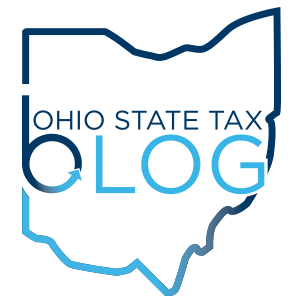Ohio Department of Taxation Targeting Quick Service Restaurants
The Ohio Department of Taxation (the “Department”) has a new initiative to audit quick service (or fast food) restaurants (“QSR”) throughout the state premised on the Department’s perception that QSRs fail to properly record taxable dine in sales.
Article XII, Section 3(C) of the Ohio Constitution prohibits a sales tax on food purchased for off premises consumption. Therefore, a consumer’s response to whether an order is “for here or to go” should determine the vendor’s obligation to collect tax on that transaction. However, sales tax must always be collected on certain items excluded from the definition of “food”, such as soft drinks and alcoholic beverages.
The Department’s initiative is designed to crack down on QSRs who consistently fail to ask customers whether their orders are for dine in or carry out. Soon after being notified that an audit is being conducted, the QSR is pressured to enter into an agreement with the Department setting forth the guidelines for a sample audit or test check, even before the QSR has retained a professional to represent it. The Department may offer incentives, such as agreeing to waive penalties, or indicate the results from the test check will be used to determine a statewide baseline for QSRs. But, in our experience, these items are not always included in the Department’s initially proposed sample agreement. Before entering into an agreement, the QSR must be aware of the significant rights being given up – such as the ability to challenge the sample as being representative or the statistical calculation used to extrapolate the results from the sample period for the entire audit period. See e.g., Shugarman Surgical Supply, Inc. v. Zaino, 97 Ohio St.3d 183, 2002-Ohio-5809, at ¶19 (“When [taxpayer] signed the test check agreement it waived any objection covering the test-check period.”); and Akron Home Medical Services, Inc. v. Lindley, 25 Ohio St.3d 107 (1986) (taxpayer “waived any objection by entering into an enforceable, written agreement with the commissioner expressly permitting a test check …”).
The initially proposed sample agreement is typically very one-sided for the Department’s benefit. Unrepresented QSRs are often shocked by the results of a sample audit or test check as being substantially higher than anticipated. However, by this time, the QSR’s ability to challenge the resulting assessment is severely limited. Therefore, the QSR should give careful and due attention to the parameters of the proposed sample audit or test check to ensure it is conducted in a manner representative of the QSR’s business and does not inflate an otherwise insignificant liability, as many provisions can often be negotiated to produce a fair, more representative result.
If you are a QSR in need of help with respect to an Ohio sales tax audit or negotiating a sample agreement with the Department, please feel free to contact us.
